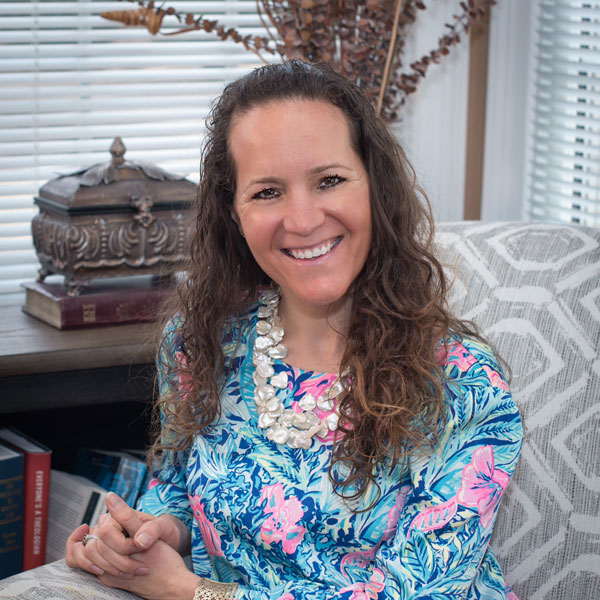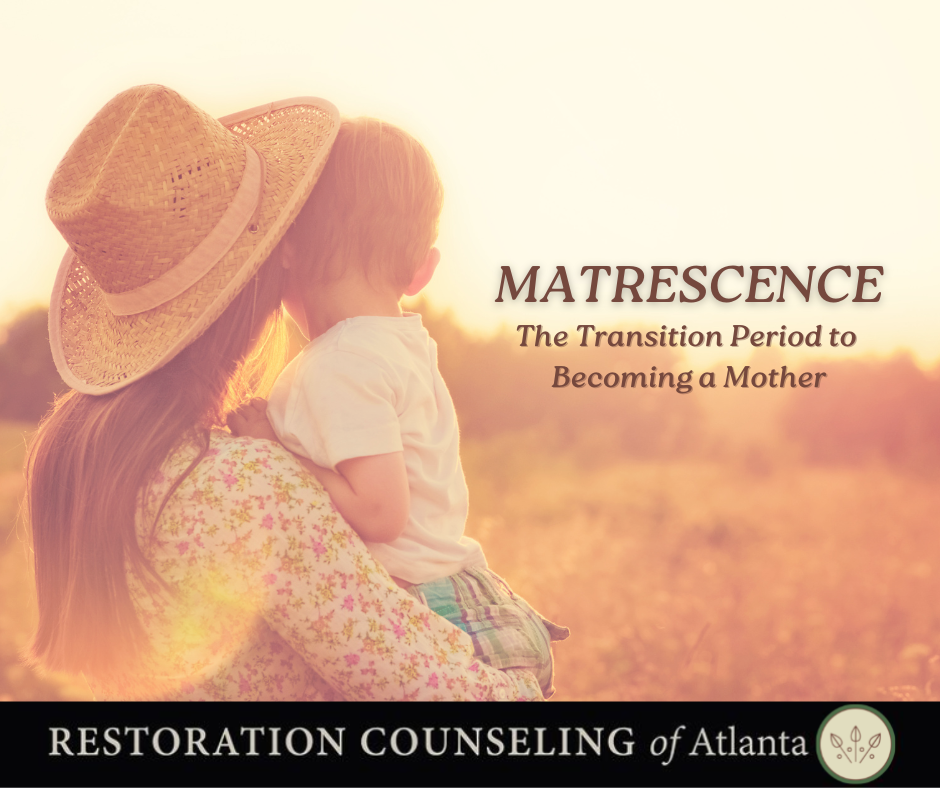The Transition Period to Becoming a Mother
Did you know that there is an anthropological term that defines the transition period to becoming a mother? It is called “matrescence.” This term was coined by Dana Raphael in 1973. She said, “Childbirth brings about a series of very dramatic changes in the new mother’s physical being, in her emotional life, in her status within the group, even in her own female identity. I distinguish this transition period from others by terming it matrescence to emphasize the mother and focus on her new lifestyle” (Matrescence article).
Matrescence is the period of time when a woman goes through the stages of conception, pregnancy, birth, the postnatal period, and beyond. The length of matrescence is individual to each person and can continue throughout their lifetime. It is similar to adolescence, when a teenager undergoes significant developmental and hormonal changes (Matrescence Ted Talk).
“The maternal brain undergoes significant structural and functional neuroplasticity as well as cognitive adaptations during the peripartum period, which are long-lasting and present throughout the lifespan…80% of mothers experience a cognitive decline including impaired memory and concentration and absent-mindedness. Cognitive improvements usually happen within a year after giving birth” (Matrescence article).
This period often gets misdiagnosed as postpartum depression, when women are actually just adjusting to being a mother. It is important to realize that uncomfortable life changes are not the same thing as having postpartum depression. A mother nursing her baby is going to experience the oxytocin hormone that increases her desire for connection. There is also a natural instinct, though, that is going to tell her to take care of herself. She will naturally feel a tension between being present with her baby and also tending to her own physical and emotional needs (Matresence Ted Talk).
Matrescence allows space and permission for the discomfort that a mother feels. It is a complex time that needs to be acknowledged, validated, felt, and moved through. If a woman knows it is normal to feel ambivalent about becoming a mother, then she will feel more validated and less alone. We need more space and opportunities to explore the transformation into a mother.
As the mother of a six-year-old boy and a 3.5-year-old girl, I am a different version of myself than I was almost 7 years ago when I was pregnant with my son. I certainly miss the freedom I used to have before having children and struggle to remember how I previously spent my time. I think I took many more walks, ran more half-marathons, probably slept more than I do now and had a lighter mental load. The number of care-taking responsibilities that require my daily attention for my children is enough to fill a whiteboard.
However, I love being their mother so much that I revel in it. I delight in spending time with them and watching them grow. I love seeing the joy on their faces when they turn a tree branch into a magic wand or pretend to paint their ceiling with Pokémon or Elsa on it. The beautiful, creative moments that they invite me into are precious. I hold all of this to be true while also knowing that so much is required of me. While I have my own needs, passions, and desires to be met, I am constantly juggling everyone coming to me with questions I feel unable to answer. I am uncertain about what is required of me and if I have enough to give. My patience is continually tested (especially with the struggle to potty-train my 3.5-year-old daughter for the last year).
As I think about this word, matrescence, I wonder how my children are transforming me. I want to remember every single moment of joy with them and let the challenges grow me into a more patient and gentle version of myself that reflects Jesus. Mothering them gives me the opportunity to re-parent the younger parts of myself, and I desire to repair with them in a healthy and loving way. I am truly so grateful for how they are transforming me so I can let go of old selfish ways. Still, I am also grieving uninterrupted adult conversations where I could give my full attention, the freedom to spend time with friends every weekend, and sleeping as late as I would like. At the same time, I now have the joy of my son coming in on Saturday morning and waking us up, making obstacle courses and forts, being the comforter my children want when they are hurting, and countless other things.
I am passionate about wanting mothers to know that they are not alone. When my 6-year-old was a baby, I was so scared of hearing him cry alone in his crib. As a therapist, all the information that I knew created more anxiety within me. I knew that babies survived by having their emotional and physical needs met. I also knew that I wanted my son to be securely attached and that the first year of life was crucial. My way of thinking was very all-or-nothing. I thought if I let him cry at all, he wouldn’t be securely attached and would not learn to rely on us. I also knew that I felt so much anger and frustration from being in his room and not wanting him to cry, which left me conflicted and feeling angry at myself. Looking back, I realize that I was in the matrescence period. I was trying so hard as a new mom. I was so scared that I would not “do it right.” It took several friends encouraging me that I cared so much about him that it was ok to let him cry for a few minutes because he needed sleep. I was meeting his emotional needs during the day.
If you are a new mother reading this, I pray that you can find comfort in knowing that you are truly not alone. You can do this. You are the mother your baby needs. Talk about your feelings and acknowledge that they are real and valid.

Written by Mead Reed, MA, LMFT, LPC
mead@restorationcounselingatl.com, ext. 115
Roswell and Buckhead Locations
Mead’s therapy style emphasizes safety, connection and engagement. Her disarming presence allows her clients to feel at ease as she helps them explore their life story. She encourages clients to name their pain in a way that helps them to be able to bring healing and redemption.

